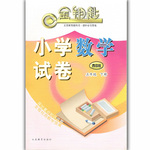题目内容
【题目】 The driver, Zhang Sai, hovered outside an apartment building in Wuhan, the central Chinese city at the heart of the coronavirus outbreak. He had been ordered not to take food to customers’ doors in order to minimize the risk of infection. But the woman on the phone was pleading, he recalled. The food was for her mother, who couldn’t go down to meet him. Mr. Zhang relented. He would drop off the order and sprint away. As he placed the bag on the floor, Mr. Zhang said, the door opened. Startled, he rushed away. Without thinking, he jabbed the elevator button with his finger, touching a surface that could transmit the virus. That was how Mr. Zhang, 32, found himself speeding back to his delivery station with one finger held aloft, careful not to touch the rest of his hand.
For many in China, delivery drivers like Mr. Zhang are the only connection to the outside world. Once a common but invisible presence on the streets of nearly every Chinese city, the drivers are now being honored as heroes. What exhausting and dangerous work! Mr. Zhang, who works for Hema, a supermarket chain owned by the tech giant Alibaba, crisscrosses (穿梭) the city armed only with the face masks and hand sanitizer that his company supplies each morning.
The epidemic has brought some unexpected bright spots. Before, Mr. Zhang said, he sometimes ran red lights during rush hour in order to meet his delivery goals for the day. Now, the streets are empty. He has no problem getting around. People are nicer, too. Some customers barely opened the door or avoided eye contact. After the outbreak erupted, everyone said thank you.
【1】Why Zhang Sai couldn’t send food to customers’ doors?
A.To keep away from the deadly disease.
B.To reduce the chance of being transmitted.
C.To avoid communicating with others.
D.To give himself a day off.
【2】What does the underlined word “relented” in paragraph 1 refer to?
A.promisedB.denied
C.admittedD.refused
【3】What advantages did the epidemic bring accidently?
A.Economic prosperity and long culture.
B.Busy business and peaceful people.
C.Splendid surroundings and energetic persons.
D.Empty streets and friendly people.
【4】What can be the best title for the text?
A.The biography of Zhang Sai’s.
B.How did Zhang Sai send food?
C.The driver Zhang Sai during the epidemic.
D.How was Zhang Sai infected?
【答案】
【1】B
【2】A
【3】D
【4】C
【解析】
本文是记叙文。快递小哥张赛讲述了他在疫情期间给人们送快递的一些经历。
【1】
推理判断题。根据第一段中“He had been ordered not to take food to customers’ doors in order to minimize the risk of infection.(他被要求不得将食物送到顾客家门口,以将感染风险降到最低。)”可以推断,张赛不能把食物送到顾客家门口是为了远离病毒,减少传染上病毒的机会。故选B项。
【2】
词义猜测题。 划线词前的句子提到“The food was for her mother, who couldn’t go down to meet him.”,那位女士说妈妈不能下楼拿食物,应该是要求张赛将食物送上楼;再根据划线词后的句子“As he placed the bag on the floor,”可知,张赛还是不顾命令,上楼将食物送到顾客的门口。由此可知,张赛是答应了那位女士的要求。可以推测relent意思为“许诺,承诺”。故选A项。
【3】
细节理解题。根据第三段中“The epidemic has brought some unexpected bright spots. ”以及“the streets are empty. …People are nicer, too. ”疫情带来了一些意想不到的亮点。在疫情期间,街上空无一人,作为快递司机的张赛可以担心闯红灯;像张赛这样的快递司机是人们与外部世界的唯一联系,人们也因此变得更加友好。故选D项。
【4】
主旨大意题。文章是关于快递司机张赛在疫情期间给人们送快递的一些经历和体会。因此文章标题应为“疫情期间的快递小哥张赛”。故选C项。

 金钥匙试卷系列答案
金钥匙试卷系列答案